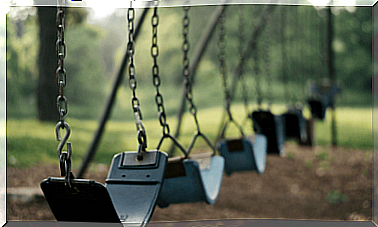Do You Know What Active Listening Implies For Our Relationships?

Do we know how to listen to others or do we just listen to what they say without taking into account the emotional content of their words? Good interpersonal communication requires active listening.
There are many definitions proposed for the skill of active listening, but they all converge that it is the skill with two main ingredients: understanding and caring. These two characteristics form the basis of active listening.
Within the framework of active listening, we allocate a large part of our resources to trying to understand the message of the person we are listening to. In addition, we give information to our interlocutor if we understand what he is trying to convey to us. It means, therefore, being psychologically available and attentive to the messages of the person who is speaking to us.
The opposite of active listening would be distracted listening. In distracted listening we are present in the place of dialogue, but our mind is prioritizing other speeches to the one they are sharing with us at that moment. With these actions we are reducing the importance of what they are transmitting to us. This would negatively affect our ability to grasp the content of our interlocutor’s message. In this sense, active listening helps us, among other things, to empathize and understand the emotions of others.

The lack of communication that we suffer today is due in large part to the fact that we do not know how to listen. We are more time pending of our own interventions and that our point of view is clear than of what the other person wants to share, and thus the essence of communication is lost. There is a mistaken belief that it is heard automatically, but it is not. Listening requires, on many occasions, a greater effort than we make when we speak.
If we really want to listen to others, let’s go beyond words
Despite the importance that we usually attribute to verbal communication, between 65% and 80% of all our communication with others is carried out through non-verbal channels. For communication to be effective, the appropriate thing is that there is coherence between speech and non-verbal expression. In this sense, in active listening, we find a parallel: it is as important to listen as it is for the other to feel that we are listening.
Active listening means listening and understanding communication from the speaker’s point of view. We refer to the ability to hear not only what the person is expressing directly, but also the feelings, ideas or thoughts that underlie what is being said. In order to understand someone, a certain empathy is required, that is, knowing how to put yourself in the other person’s shoes and trying to understand how they feel from that place.

Non-verbal language affects the way we act and react, either to others or to ourselves. To listen beyond words is to understand, understand or make sense of what is heard and what is seen. Understanding the person who is speaking to us in all the dimensions of what they want to tell us does not imply agreeing with everything they are saying, but rather listening to what they are saying with manifest interest.
Knowing how to listen is the best remedy against loneliness
Most people like to talk more than listen. When we talk about ourselves, we activate the areas of the brain related to pleasure, so it is somewhat normal that we prefer to hear ourselves than others.
Dale Carnegie wrote a book that in the United States became more widely read than the Bible. It was titled “How to win friends?” and it was actually a treatise for a country that used its philosophy and method to improve human relations. Darnegie noted how the trust created by active listening positively influenced personal relationships, creating new ones and strengthening existing ones.

Listening actively to others gives us the opportunity to create a social network where complicity prevails. Listening to the other leaving aside what we are doing, being attentive even if what they tell us seems wrong or irrelevant, makes the person speaking to express himself as he really is.
When we listen carefully and without interrupting, we make the person who is speaking feel relaxed and manage to vent with us by revealing their most real feelings. Most of the time we do not need others to give us their opinion, but to sit down and listen.
Sometimes we have the power to help people without lifting a finger and most of the time we are not aware of it. The gift of knowing how to listen to others makes us understand people better, that they feel more connected to us and that we are more likely to achieve a positive relationship. In this sense, what we give will have an impact on us. Thus, even if it is only on the basis of a selfish interest, active listening is worth it.
Bibliography
Contreras, MM, & San Rafael, C. Learning to listen.
Gómez, Á. H., Gómez, JIA, & Rodríguez, MAP (2011). Creative communication techniques in the classroom: active listening, the art of asking questions, managing silences. Education and the Future: Journal of Applied Research and Educational Experiences , (24), 153-180.
Martín-Barbero, J. (1978). Mass communication: speech and power (No. 04; HM258, M37.). Quito: Ciespal.
Subiela García, JA, Abellón Ruiz, J., Celdrán Baños, AI, Manzanares Lázaro, J. Á., & Satorres Ramis, B. (2014). The importance of Active Listening in the nursing intervention. Global Nursing , 13 (34), 276-292.
Torres, ME (2005). Assertiveness and active listening in the academic field .









